# 3 There ain’t no mountain high enough to stop us from being nationally connected…
Visiting schools in other parts of the country is a special part of this programme. But what did we learn?
It was a total privilege to get to visit some truly inspiring schools in Birmingham again this spring. This year marks a new record for how many regions we can bring together in one Premier Inn at once; joining forces with aspiring heads in the West, the South West and the East adds many extra opportunities for these national connections to flourish. It also proves that there really ain’t no mountain high enough to keep us from coming together to challenge educational disadvantage.

We have repeatedly chosen the Midlands as a location for the second set of school study tours because there are a number of schools closing the gap here. The three schools Yorks100 participants got to see this time were no exception.
On day 1, primary colleagues went to Shirestone Academy (part of the Elliot Foundation Trust) to the East of the city with guest facilitator Michelle Blanchard. Participants were blown away by the way Principal Nadeem Bashir shared his own leadership journey and felt this then resonated throughout all staff and students they spoke to. Given that we were really focusing on CPD this term, it was great to see a culture of feedback fully embedded and all were empowered to lead in one way or another, promoting a sense of real agency amongst staff and students alike.
Meanwhile, secondary colleagues headed South West of the city to Single Academy Trust, Harborne Academy. We had the privilege of spending the day with headteacher Sarah Ross, who has a refreshingly honest approach to staff wellbeing (Putting Staff First was her recommended pre-read!) whilst also maintaining only a 0.03 gap between the P8 of her disadvantaged and non disadvantaged students. It is possible to be an effective headteacher and have three children and run marathons if you hold your nerve about what your priorities are. We also have Sarah to thank for setting us on our journey to think deeply about Polarity management - more on this later.
Something that really stood out in this visit however, was the importance of environment. Just take a look at this phenomenal library! What does it say to students when you invest time and energy into creating spaces that are genuinely beautiful?
On day two, Primary and Secondary friends were reunited at all-through school Ark Victoria to hear from Ela McSorley and colleagues about this impressive school’s journey over recent years. It felt fitting to visit on World Book Day as the primary (left) and secondary (right) reading data here is really something to marvel at;
Here 81% of children in the primary phase are now meeting expected standard in writing and maths and we were absolutely blown away by the commitment to literacy throughout the school. There was such clarity from our tour guides about what was happening in each lesson, why and how before we even began our tour, it was clear an enormous amount of ‘sensitive codification’ (as one participant put it) had gone into every decision. This visit also busted a few myths about what it is like to be part of a large trust; it doesn’t have to be corporate and cold and there is room for innovation.
On the third and final day of our study tour to Birmingham, we brought two more educational power-houses to participants.
First up, we heard from our Cradle to Career partner Tom Beveridge (Headteacher at Alderbrook school in Solihull) who spoke with clarity and humility about his differing headships and lessons learnt. Some of our participants will be taking on turnaround schools in aeas they don’t know well. Others will be taking over from their current headteacher in a well-managed succession plan. There are hundreds of other scenarios in between. As such it is super important we put as many examples of what starting headship looks like in their way.
Up next was Tom Rees (CEO of Ormiston Academies Trust) who sharpened our thinking on inclusion, but we’ll share more on this later.
We also asked all four regions to unite to share their wisdom from the various school visits they’d been on. The Reach Foundation is so grateful to leaders in the following schools who were also generous enough to open their doors to us;
St Michael’s Church of England Primary Academy
St Matthew’s C of E Primary School
We invited participants them to connect with others in different regions, but similar contexts (e.g. coastal, special, small MAT, large MAT, maintained schools, urban contexts). This session enabled further reflection and discussion about how the lessons learnt in Birmingham could be applied in a variety of contexts.
Despite knowing that many people apply to this programme in order to see schools, it was interesting to see in the feedback that something they most appreciated was the reflection time together after the visits;
Both school visits offered such contrasting views showing that different approaches can achieve excellence if done effectively. There was lots of thinking time to really digest and discuss content. I really enjoyed then coming together as larger group to unpick learning on a national level.
Hannah Stubbs, Ebor
Most of all, it seemed to incite a sense of urgency about ensuring that all children, from Filey to Falmouth, have access to a life of choice and opportunity. So what are people taking back to their schools? Stay tuned for post #4 of this middle eight series.
And remember, if you ever want to find out more about the programme, please don’t hesitate to get in touch!



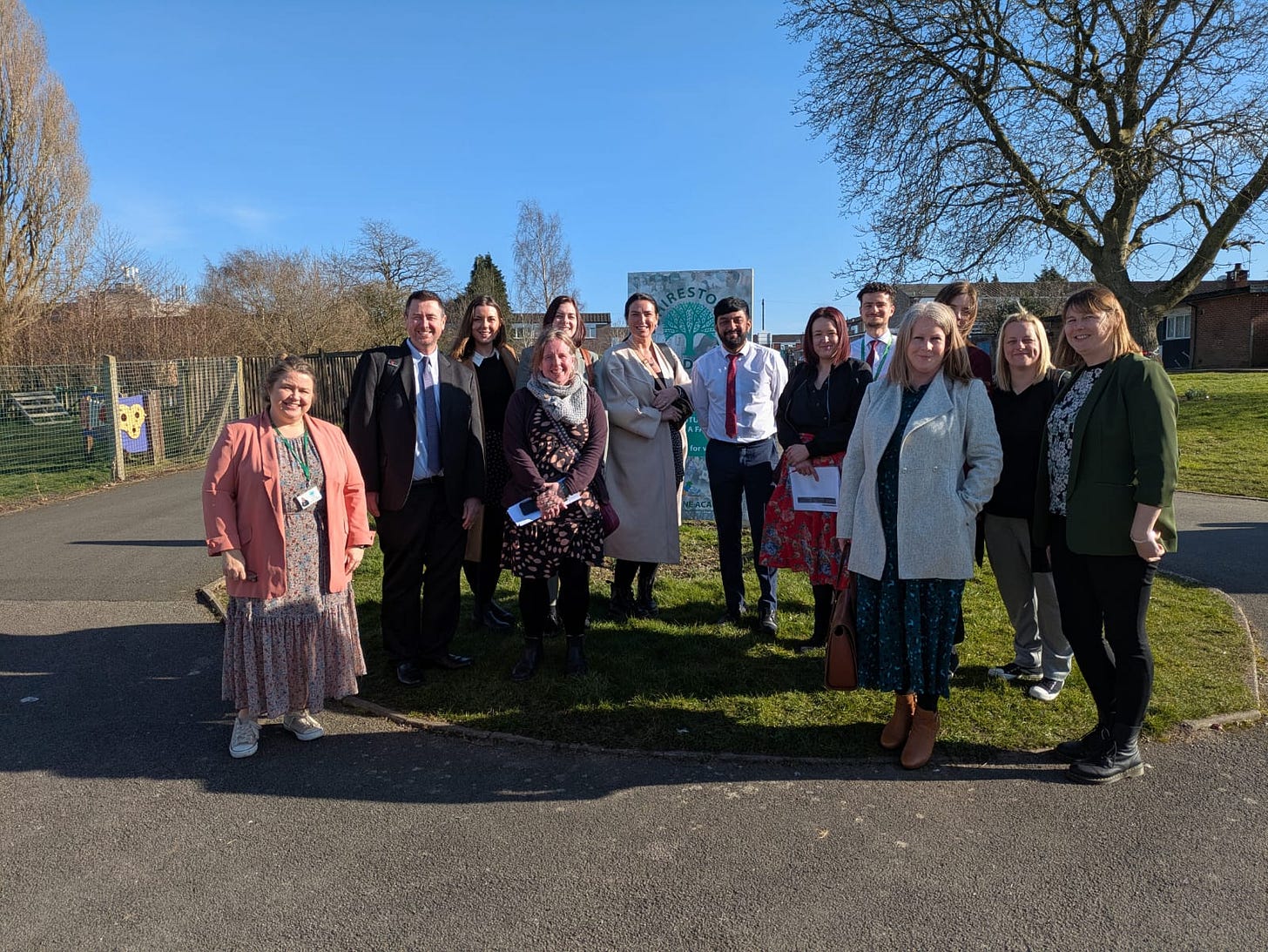
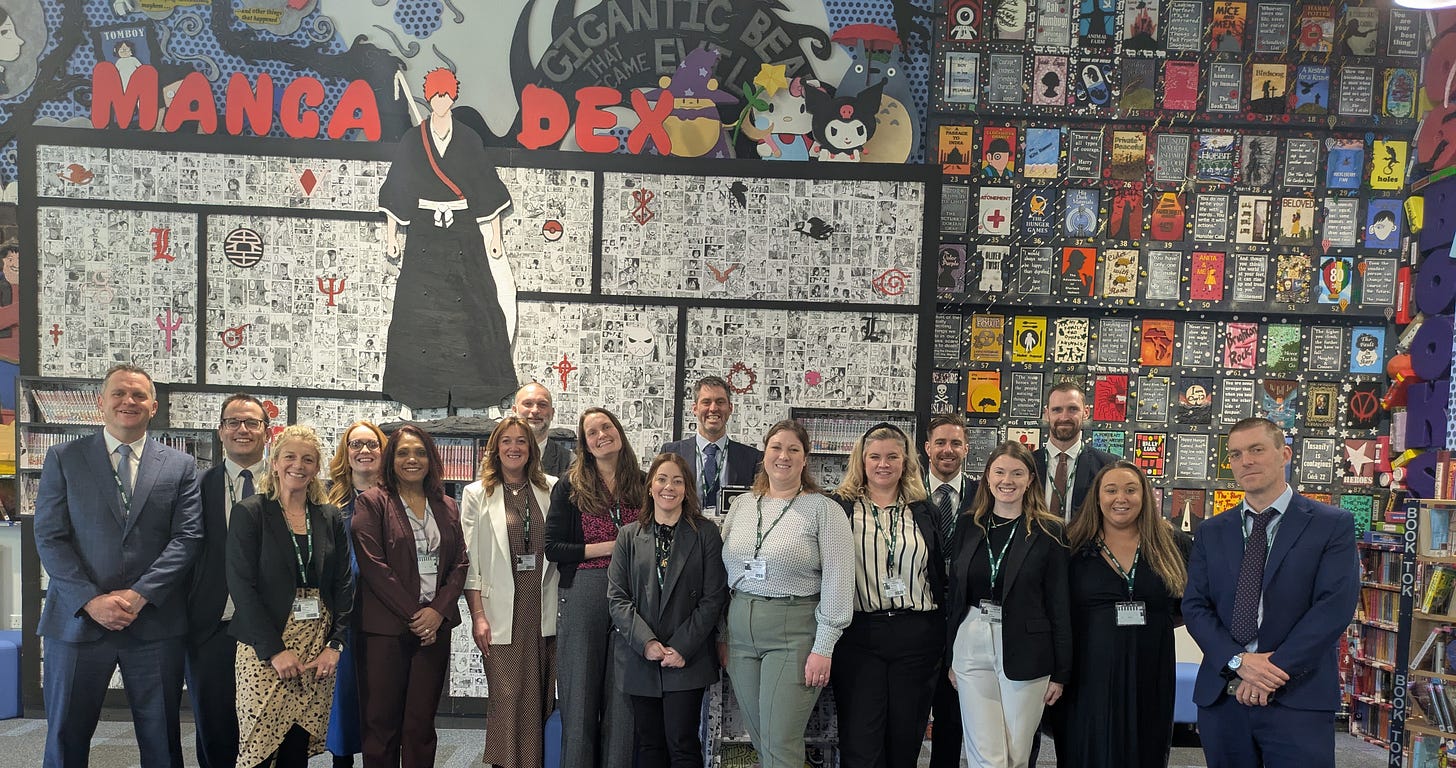
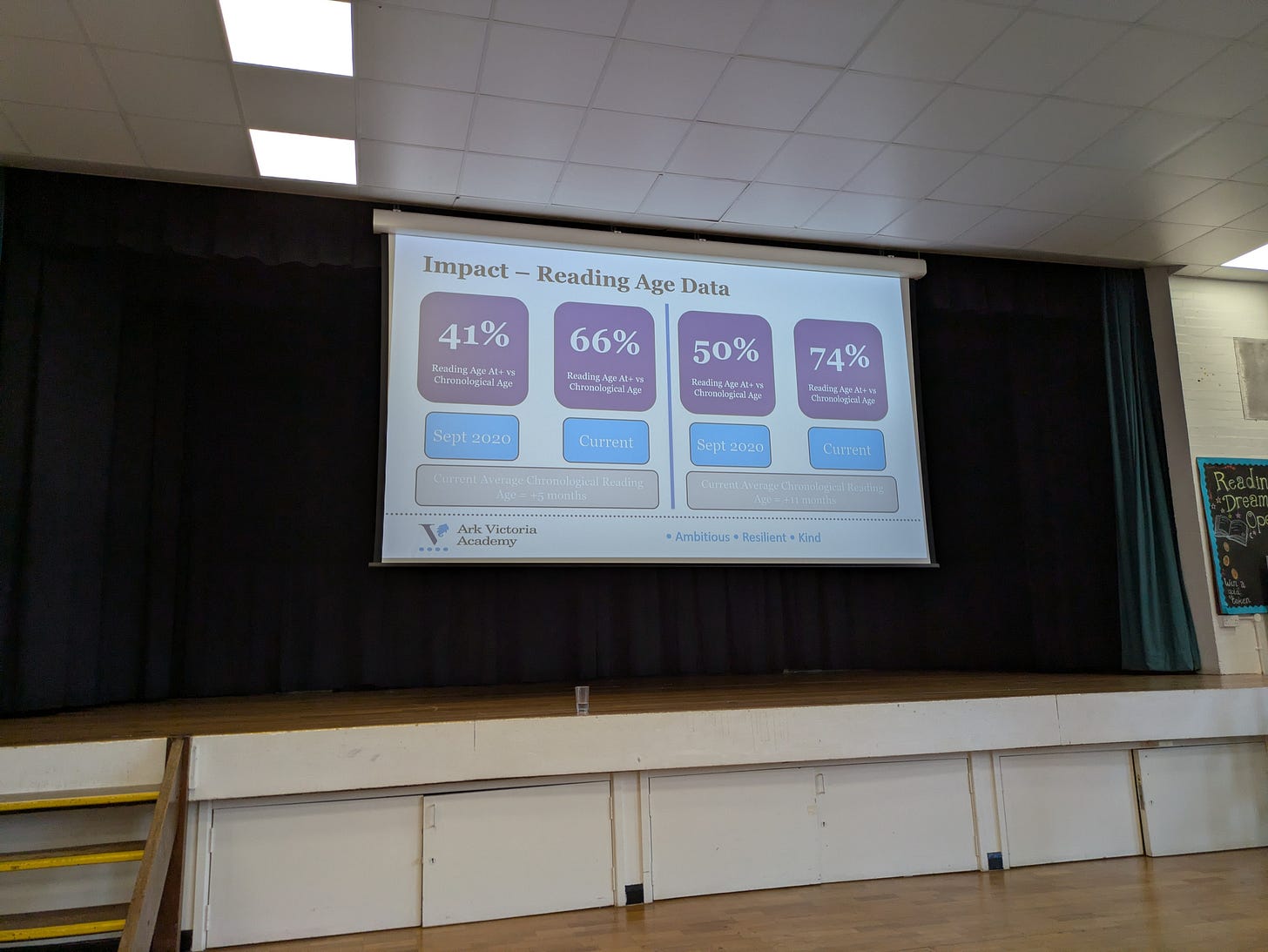
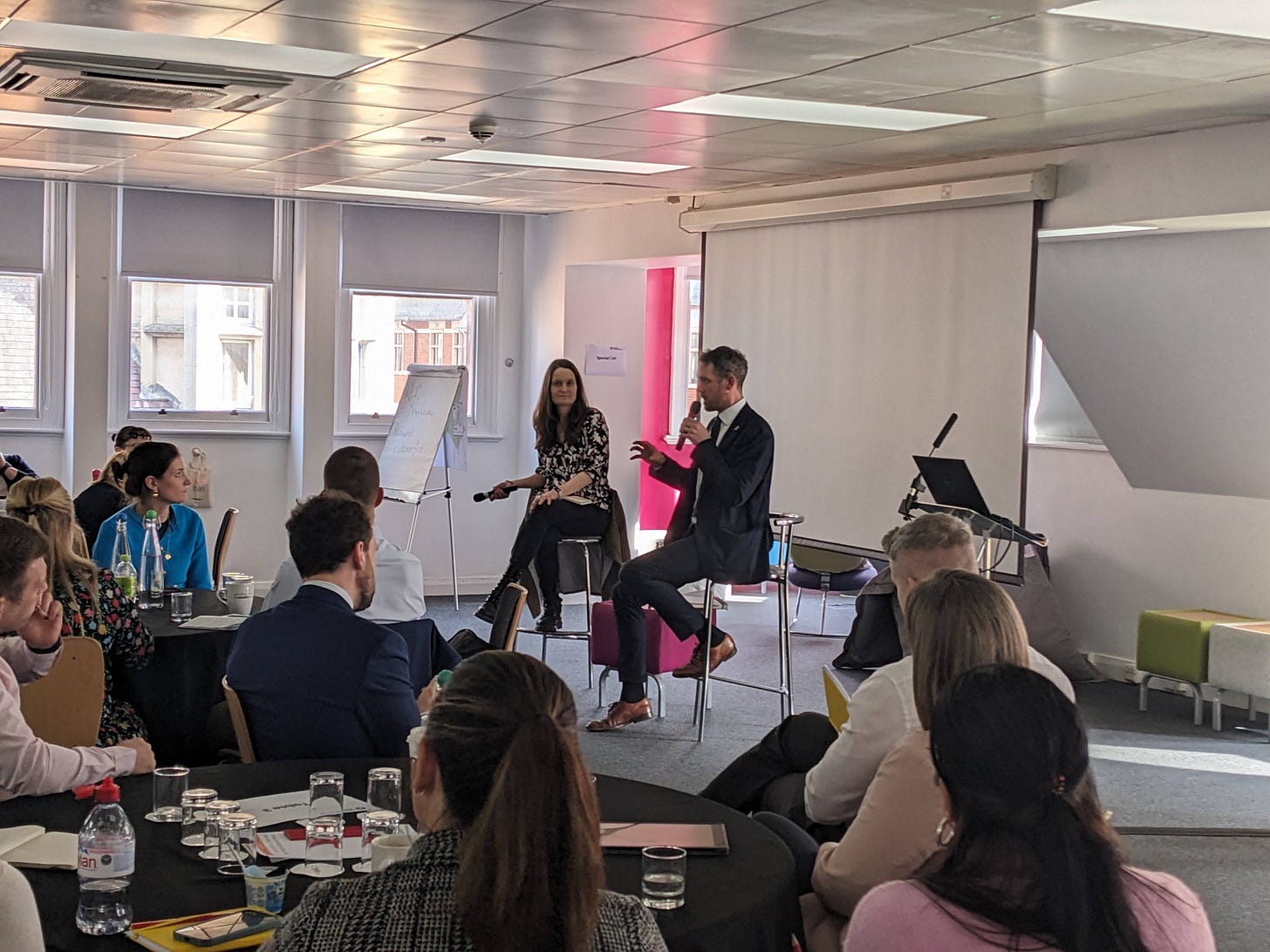
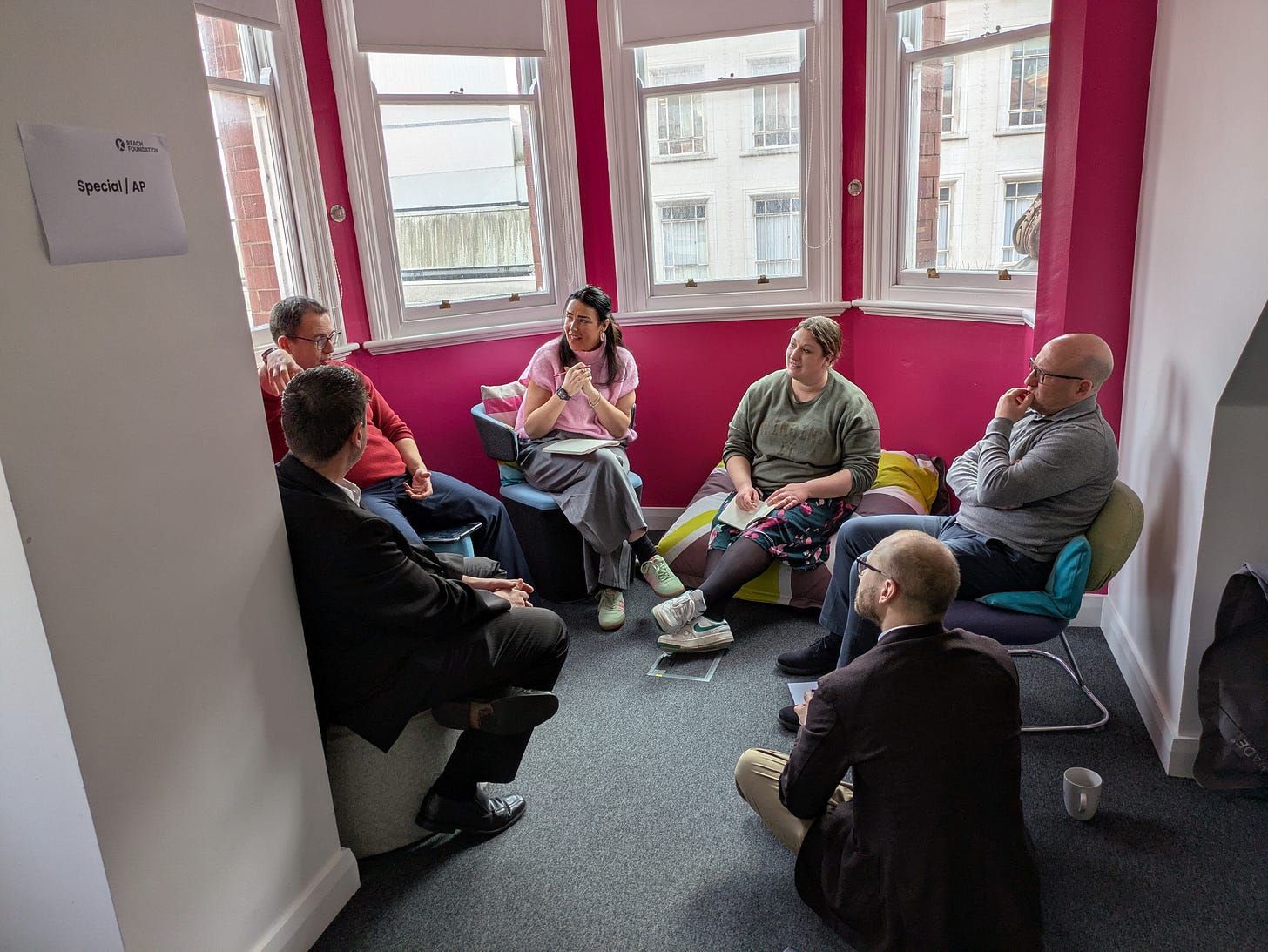
Why did they put this on the Q3 website I can't even see Q3